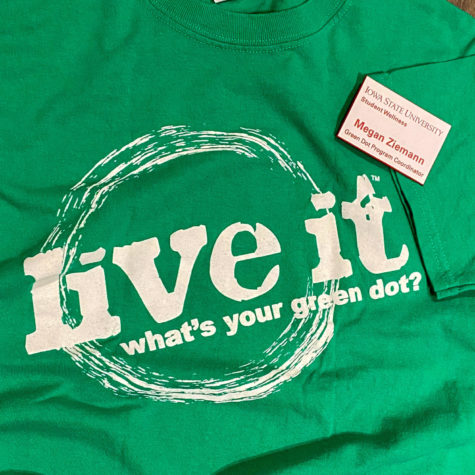Eat healthy, exercise frequently to keep your heart healthy for Valentine’s Day and beyond
February 12, 2012
While seeing that hottie in your class might get your blood pumping, participating in cardiovascular exercises is a sure way to increase your heart health and keep your body looking good, should you decide to speak to that crush of yours.
Shaylee Olhausen, group fitness instructor for Cardio Sculpt at State Gym, explained, “The best exercises to get your heart pumping are any exercises that involve full body movements such as running and dancing.”
Dr. Scott Meyer of the Thielen Student Health Center quoted recent studies that have proven the benefits of cardiovascular exercises for your health.
“Regular physical activity using large muscle groups, such as walking, running, or swimming, produces cardiovascular adaptations that increase exercise capacity, endurance, and skeletal muscle strength,” Meyer said, quoting an American Heart Association study. “Habitual physical activity also prevents the development of coronary artery disease and reduces symptoms in patients with established cardiovascular disease.”
What makes a workout a “cardio workout”? Meyer provided a study from the College of Medical, Veterinary and Life Sciences at University of Glasgow in Glasgow, Scotland, that stated “there is evidence that exercise intensity, rather than duration or frequency, is the most important variable in determining cardio protection.”
The intensity of the workout increases your heart rate immensely. When working out, pay attention to your maximum heart rate and your target heart rate. Your maximum heart rate can be found using the following equation: 220 minus your age equals your maximum heart rate. Your target heart rate is the rate of your heart beat during your workout in which your heart and lungs receive the most benefit.
“The target heart rate that you should strive for during your work out is anywhere from 50 percent to 80 percent of your maximum heart rate,” Olhausen said. “This is typically around 150 to 160 beats per minute.”
Hitting the gym for some cardio is good for the rest of your body too.
“Cardio workouts are beneficial for more than just your heart. Cardio routines help to reduce stress, lower cholesterol and blood pressure, exercise the lungs and fight obesity,” Olhausen said. “Everyone should incorporate cardio into their workout three to four times a week for at least 30 minutes.”
Exercising is not the only way to take care of your heart. Eating properly will keep your heart beating away as you approach that man or woman of your dreams.
“Eating more fruits and veggies [five to nine servings a day], especially those with deep, dark colors for antioxidant intake, is linked to reduced risk for cardiovascular disease and other health concerns as well,” said Sally Barclay, food science and human nutrition clinician.
Barclay advised that people should eat healthy fats like nuts, olive and canola oils and fish. She said people should limit their intake of saturated fats, such as bacon and butter, and trans fat, such as partially hydrogenated oils.
“Studies [have] shown the health benefits of a handful of nuts eaten three to five times a week,” Barclay said. “And they are a good portable snack.
Barclay also said that students, even though they are usually young, should still try to keep their hearts healthy.
“Many people think that heart disease should only be a concern for people over the age of 60, but that is not true,” Barclay said. “According to the American Heart Association’s 2011 update, 14.2 percent of men between the ages of 20 and 39 and 9.7 percent of the women in that age range had an occurrence of heart disease.”
Barclay stressed the importance of students taking control of their habits now to ensure a healthy future. She recommended that students should consider “healthy eating, exercising, not smoking, monitoring alcohol intake and managing stress” in order to protect their hearts.
“Students are setting up their lifestyles, eating and activity patterns and healthy habits. This could control risks for heart disease that may impact their future health,” Barclay said. “Heart disease is the number one killer for both men and women.”
















